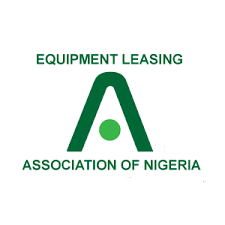The Nigerian Leasing Industry’s Remarkable Growth and Economic Impact
The Nigerian leasing industry witnessed a remarkable surge in 2024, achieving a growth rate of 23.2% and reaching a total value of outstanding leases of N5.17 trillion, a significant increase from N4.19 trillion in 2023. This impressive performance, reported by the Equipment Leasing Association of Nigeria (ELAN), highlights the sector’s resilience amid prevailing macroeconomic and global challenges. New lease transactions also reached a peak of N973.3 billion, further solidifying the industry’s upward trajectory. Over the past decade, the leasing industry has contributed a substantial N24.6 trillion to the Nigerian economy, underscoring its crucial role in facilitating asset acquisition and driving economic activity across various sectors.
The growth of the Nigerian leasing industry can be attributed to a confluence of factors, primarily the escalating cost of assets resulting from the removal of petrol subsidies and the floating of the naira. These policy changes necessitated increased funding for lease acquisitions, driving up the overall value of lease transactions. Furthermore, the industry benefited from the entry of new players into the market, expanding the reach and accessibility of leasing services. Increased awareness of the benefits of leasing among businesses also played a role, as more companies recognized leasing as a cost-effective and flexible alternative to outright asset purchase. Lastly, the resilience and innovation of industry players were instrumental in navigating the challenging economic environment and capitalizing on emerging opportunities.
Analyzing the sectoral distribution of lease transactions reveals a concentration in key sectors driving economic activity. The oil and gas sector accounted for the largest share of leases, with N1.38 trillion or 26% of the total value, reflecting the capital-intensive nature of the industry. The transportation and logistics sector followed closely with N1.18 trillion (21%), highlighting the increasing demand for efficient movement of goods and services. Manufacturing accounted for N734.3 billion (13%), while telecoms, agriculture, and government sectors contributed N462.2 billion (9%), N378.6 billion (8.5%), and N345.3 billion (7.5%), respectively. Other sectors, encompassing education and healthcare, collectively accounted for N686 billion or 15% of the total lease value. This diversified sectoral representation underscores the widespread adoption of leasing across various industries.
Within the leasing landscape, finance leases retained their dominance, comprising 52% of total transactions. However, operating leases gained significant traction, particularly among corporate clients seeking to outsource logistics and transport services. This shift reflects a broader trend towards outsourcing non-core business functions and optimizing operational efficiency. Consequently, many lessors have adapted their strategies, transitioning from finance leases to operating leases to mitigate risks and cater to the growing demand for outsourcing solutions.
Vehicle leasing emerged as the most prominent asset category, accounting for 53% of the total asset base. This segment encompasses a variety of vehicles, including staff buses, haulage trucks, and commercial vehicles integral to daily operations across numerous industries. The prevalence of vehicle leasing underscores the critical role of transportation in facilitating economic activity and the benefits that leasing provides in acquiring these essential assets.
Looking ahead, the Nigerian leasing industry is poised for sustained growth, driven by several key factors. Government investments in infrastructure, particularly in sectors like transportation, power, healthcare, construction, and agriculture, are expected to create significant demand for leased assets. The operationalization of the Equipment Leasing Registration Authority (ELRA) is also anticipated to bolster industry development by fully implementing the Equipment Leasing Act 2015. This regulatory framework will provide greater transparency and standardization, fostering trust and attracting further investment in the sector. Furthermore, the growing recognition of leasing as a strategic tool for businesses seeking to access and utilize assets efficiently will continue to fuel the industry’s expansion.
In conclusion, the Nigerian leasing industry has demonstrated remarkable resilience and growth, playing a pivotal role in supporting economic activity across various sectors. With a contribution of over N24.6 trillion to the economy over the past decade, the industry has firmly established itself as a key driver of asset acquisition and business expansion. Driven by factors such as rising asset costs, increased awareness, and government investments in infrastructure, the leasing sector is projected to maintain its growth trajectory, further contributing to the overall economic development of Nigeria. The operationalization of the ELRA and the continued innovation of industry players will further enhance the sector’s stability and attract increased investment, solidifying its position as a vital component of the Nigerian economy.














